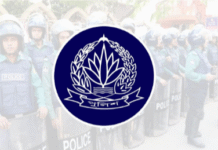By Kamran Reza Chowdhury and Sunil Barua on Oct 08, 2021
Benar News
After months of negotiation, the United Nations refugee agency will begin humanitarian operations on a remote island where Bangladesh has moved almost 19,000 Rohingya and plans to relocate more than 80,000 others, a senior minister told BenarNews on Friday.
The government and UNHCR are set to sign a memorandum this weekend, according to Enamur Rahman, state minister at the Disaster Management Ministry. He did not say when the refugee agency would begin its work on the island.
“The UNHCR has finally agreed to start their operation in Bhashan Char. They will sign an MoU [Memorandum of Understanding] with my ministry on Saturday,” Rahman told BenarNews.
Bangladesh has built homes on the remote Bay of Bengal island so it can move the refugees there from congested camps in Cox’s Bazar, a mainland southeastern district near the Myanmar border.
BenarNews contacted the refugee agency’s office in Dhaka and its headquarters in Geneva on Friday, but did not immediately hear back. However, UNHCR confirmed to news agency Agence France-Presse that it was signing the memorandum.
“After the signing of the MoU, the UNHCR will carry out operations in the same way they currently do at Cox’s Bazar camps – the UNHCR will provide food, health and other humanitarian services to the Rohingya in Bhashan Char,” minister Rahman said.
Currently, local NGOs provide food and health services for the Rohingya in Bhashan Char, he said.
The refugees on the island have said they get food free of cost, but the quality and variety is better at Cox’s Bazar. Health care facilities also are better on the mainland.
Rahman said he hoped more Rohingya would want to move to the island from crowded Cox’s Bazar once UNHCR begins its humanitarian work there.
“We have been planning to relocate some 83,000 more Rohingya to Bhashan Char in phases,” he said.
Cox’s Bazar hosts about 1 million Rohingya. The refugees include more than 740,000 who fled Myanmar after the military launched a brutal offensive in August 2017 against the community in their home state of Rakhine.
But the influx of such a large refugee population has strained the economy and host communities in the coastal border district. In addition, the makeshift shanties in the 34 refugee camps on the mainland are fire hazards.
To ease that pressure, and as the refugees’ repatriation prospects got grimmer, Bangladesh built facilities on Bhashan Char – it says it spent $280 million – with the aim of moving 100,000 refugees there.
The first batch of Rohingya moved in December 2020.
Some rights groups have alleged that the Rohingya did not move to the island voluntarily, as the Bangladesh government insisted. Others alleged that the government falsely promised the refugees citizenship if they moved to Bhashan Char.
BenarNews has not been able to substantiate any of these allegations.
Meanwhile, some Rohingya and rights groups have said that since the move, hundreds of refugees have fled the remote island, some at the cost of their lives. In August, 11 Rohingya died and 15 went missing after their boat capsized in bad weather when they tried to escape the island.
Some fled because of poor facilities and others because they had nothing to do there. They claimed tht they were not allowed to leave for the mainland for shopping trips or to meet relatives.










